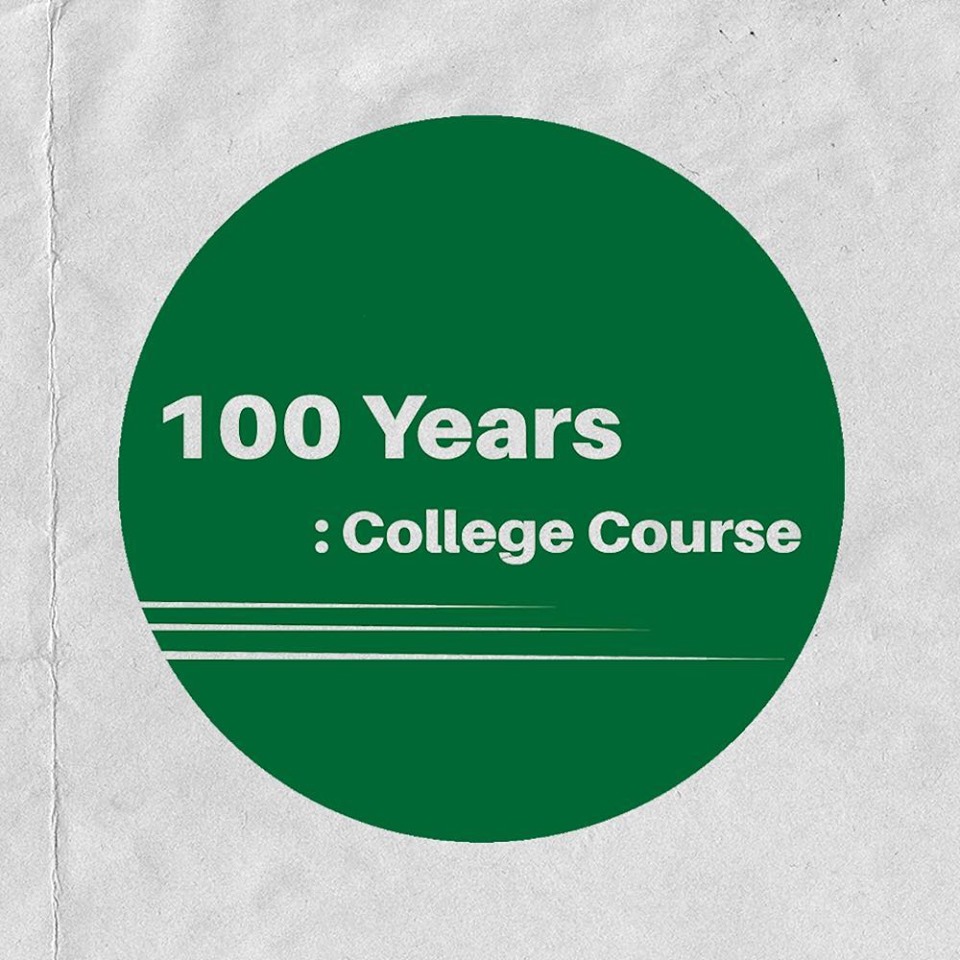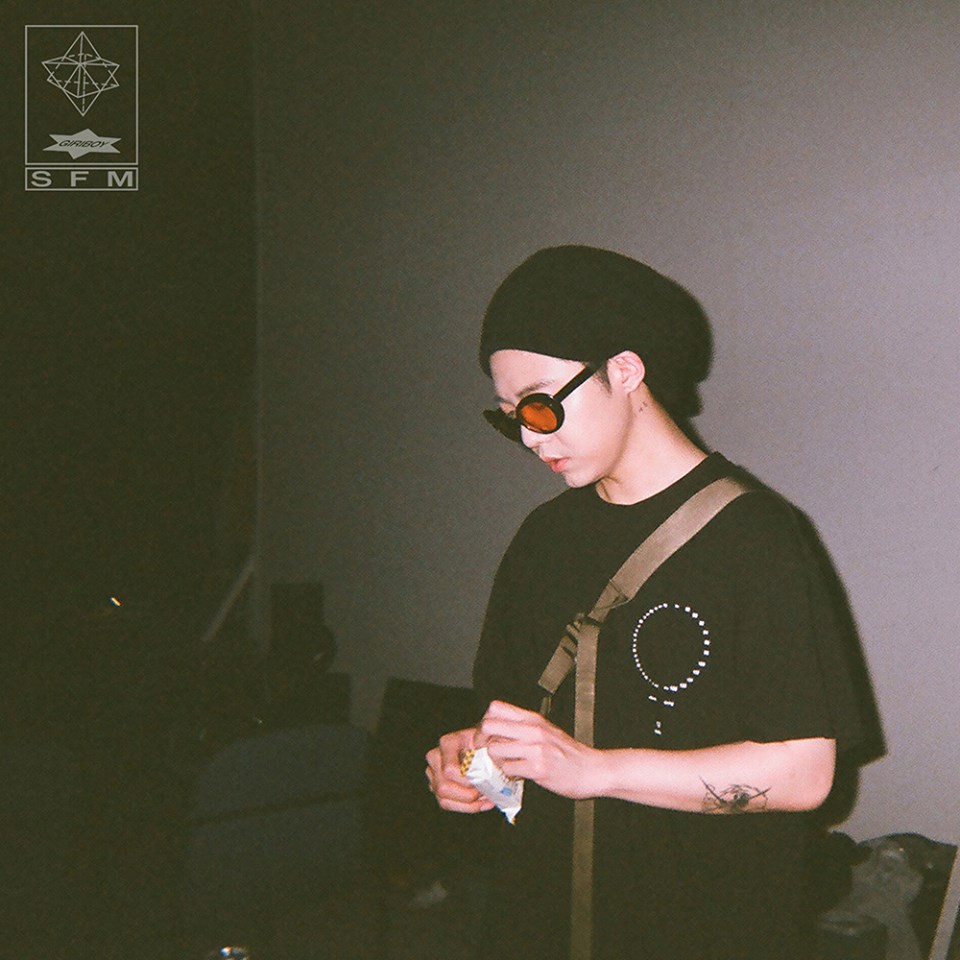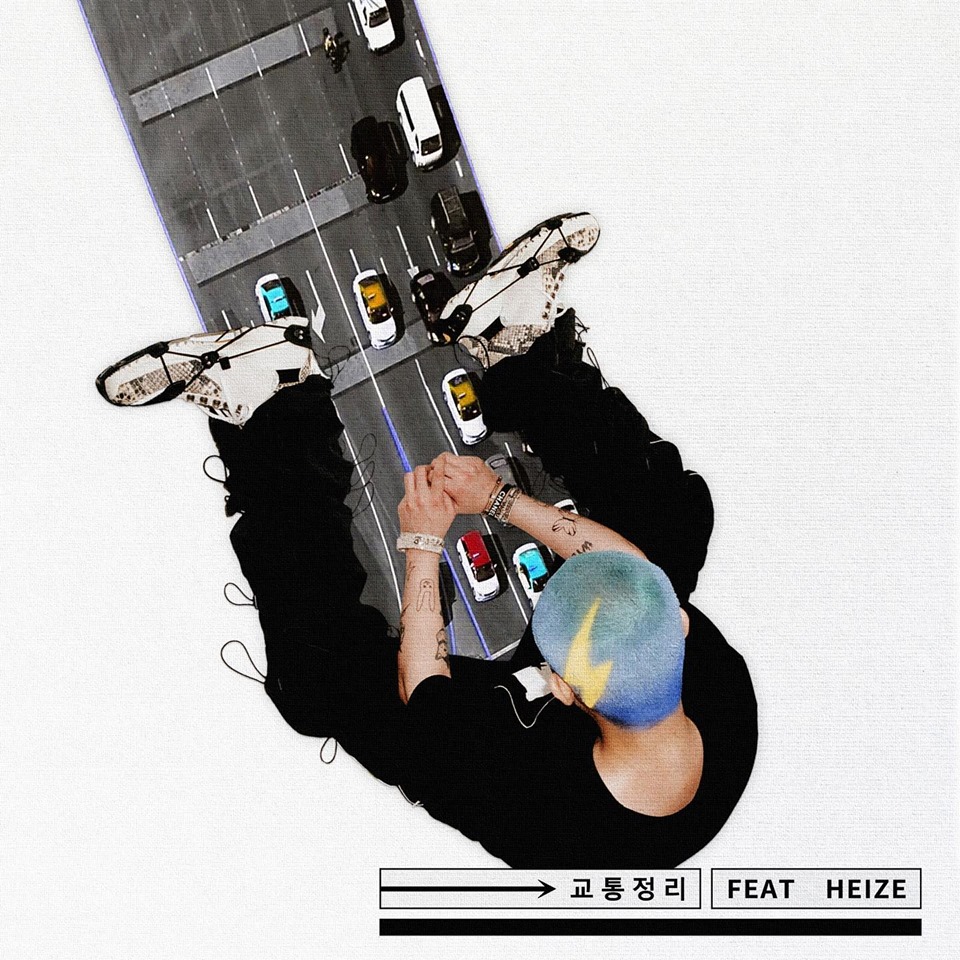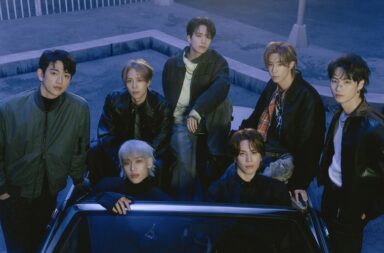
An attempt at encompassing the different experiences accumulated in a lifetime, Giriboy‘s newest album, 100 Years: College Course, is an ambitious storytelling project. This album focuses on narrative-making, but it does not neglect music production. Giriboy’s versatility in musical styles, as seen in the tracklist, reflects the diversity of living experiences an individual could have. In this satisfying and inspiring creation, Giriboy pushes listeners to think about the possibilities of music as an archive of narrated experiences and the possibilities of collective art.
In an interview with Korea Joongang Daily about his recent release, Giriboy expressed his continued interest in using music as a means of creating stories. Of course, there is almost always a story driving a song, but Giriboy’s attention to creating highly fictionalised worlds and extraordinary concepts sets him and his music apart from others. He states:
“Have you heard of ‘Black Mirror’? I like things like that, things that make you feel bad when you watch them. I used to make some songs like that in the past. There are some songs that would be unsettling for people. There’s a song where a guy is too obsessed with a girl and she leaves, but he kills her for that.”
Terrifying as that might sound, his statement reveals the limits with which musicians can push art-making. Korean music no longer has to stick with overused themes about love or loss; visceral and speculative fictions can walk beyond just books or movies.

With 100 Years: College Course, Giriboy proposes a rhetorical framework for listeners: “They say our average life expectancy is 81, but supposing that you live up to be 100, it’s like attending ‘Earth School’ while you’re living on Earth.” It is interesting to ponder over what lessons we might learn in a life spanning a century, and Giriboy uses his album to record stories of his own and of others. Listeners can use his music as a portal into possible lived situations of others and speculations of our own futures.
It is not an easy task trying to pick from the boundless range of living experiences. Perhaps knowing this limitation, Giriboy has chosen instead to present diversity using the range of music genres within the album and resisting the use of lyrical content that is easy to label. With just eight songs, he walks us through a fusion of retro beats, a range of hip hop styles, and even a rock-based song. At the same time, he presents a spectrum of experiences about breakups, love, work life, and even a certain jadedness with society.
The first few tracks of the album get the engines running. “Towkio” runs with retro electro and pulsating synthwave beats, while “I’m Sick” is a more familiar hip hop-styled track. “I’m Sick” has C.Jamm, Kid Milli, Kim Seungmin, Lil tachi, and NO:EL joining Giriboy, and it seems more like a party song at first glance. Even though it is a gathering of friends and the first few lines run with the typical rapper boasting of his crew as too cool to handle, the hook itself is isolating:
My friends are sick
My friends are busy
My friends are bad
So you better pay me proper
The Korean title “아파,” which simply means being in pain or unwell is translated into “I’m Sick.” Intentionally or not, Giriboy plays with the meaning of “sick” in English, which means feeling unwell, but is also slang for describing something as being phenomenal.
This mix of emotions and meanings makes it hard to position the song, and becomes an apt representation of the impossibility of categorizing life as purely sad, happy, or otherwise. Even a song that is supposed to be for mindless partying can be attached the lyrics speaking about the struggles of earning money; every awesome moment of performance is also tied down to worries of being paid well or being able to please. The multi-faceted nature of life itself shines through with the song.
On the other hand, the remaining songs like “Rain Drop” and “The Bitter Words” veer towards ballad hip hop, a style familiar for fans of Giriboy’s music. With these songs that place attention on lyrics, Giriboy paints various portraits of emotional hurt. “Rain Drop” is a poetic composition of a lover brooding over a breakup, describing pain as a slow plague of the colour black:
Colours that trickle down, a blackness
While I’m steeped in black thoughts,
I stay up all night, the sinner’s price to pay for breaking up

This overt depressiveness is quickly cut away by the coldness of “Bitter Words,” where a lover dishes out hurtful and cold phrases in a moment of breakup. Even the pre-release track featuring Heize, “Traffic Control,” takes on an alternative view of a forgone relationship. It describes the awkward moment where two ex-lovers bump into each other on the streets. The notion of managing traffic is a metaphor for learning how to recalibrate a post-breakup life, such that any such uncomfortable coincidences might occur, be it in terms of straightening out feelings or daily activities and social circles.
Giriboy then proceeds to console with “The Arts.” He elevates a lover to be akin to art in “The Arts,” probably the highest form of praise a musician who has devoted his life to creating art has to offer. The track is light-hearted and its beats slightly cheeky at points; this is a reprieve from the depressing tones of other tracks and assures that life is not entirely hopeless.
The album, however, is not only about Giriboy’s own experiences or imagination. He reveals that he in fact requested fans to share their stories with him via Instagram Live. In return, he received close to 9000 emails, of which he read through a good 2000 or so to better understand the stories others had to offer. He confesses that some songs in this album incorporates the stories he had received with his own.

Hearing Giriboy reveal such a method of drawing inspiration, I wondered if 100 Years: College Course pushes the limits of music production. The album acts as an archive of stories from different people of varying ages and backgrounds. The worries of a company employee are delivered through “Why are we so tired,” but the variety of love songs and breakup songs also reflect the change of attitudes and perhaps numbing of emotions towards farewells as we age.
The musician as creator can now look at himself as a collector of narratives, with music as a mode of collective storytelling and historical record, albeit in only a miniscule way. This awe-inspiring album has opened a new way of thinking about music-making: the musician as archivist. In a world where attention spans are getting shorter, music appears to be a good alternative for condensed yet equally striking stories.
The album comes to a close with “The End,” a pensive contemplation on closure and a consolation for listeners at the end of a long journey. The rock ballad track offers a satisfying curtain call and is a contrast to the urban electro tune of “Towkio” at the album’s beginning. Faced with the harsh reality of departure and an impossibility of turning back time, Giriboy repeats: “It’s just the ending.” 100 years is a long time to be on earth. Perhaps at the end of it all, there leaves only acceptance of what has come to be, whether good or bad.
100 Years: College Course achieves what it sets out for as a thought-provoking project. Giriboy has taught us that music can be more than performance by approaching music composition from the perspective of a storyteller ; it can be history and community. The limitations of art continue to be pushed with this particularly ambitious masterpiece. The short tracklist truly feels like an extended voyage, one that comes with a grand finale and a pensive closure that we might sometimes be denied in real life.
(Genius [1][2][3], Korea Joongang Daily, YouTube [1][2]. Images via JustMusic)



